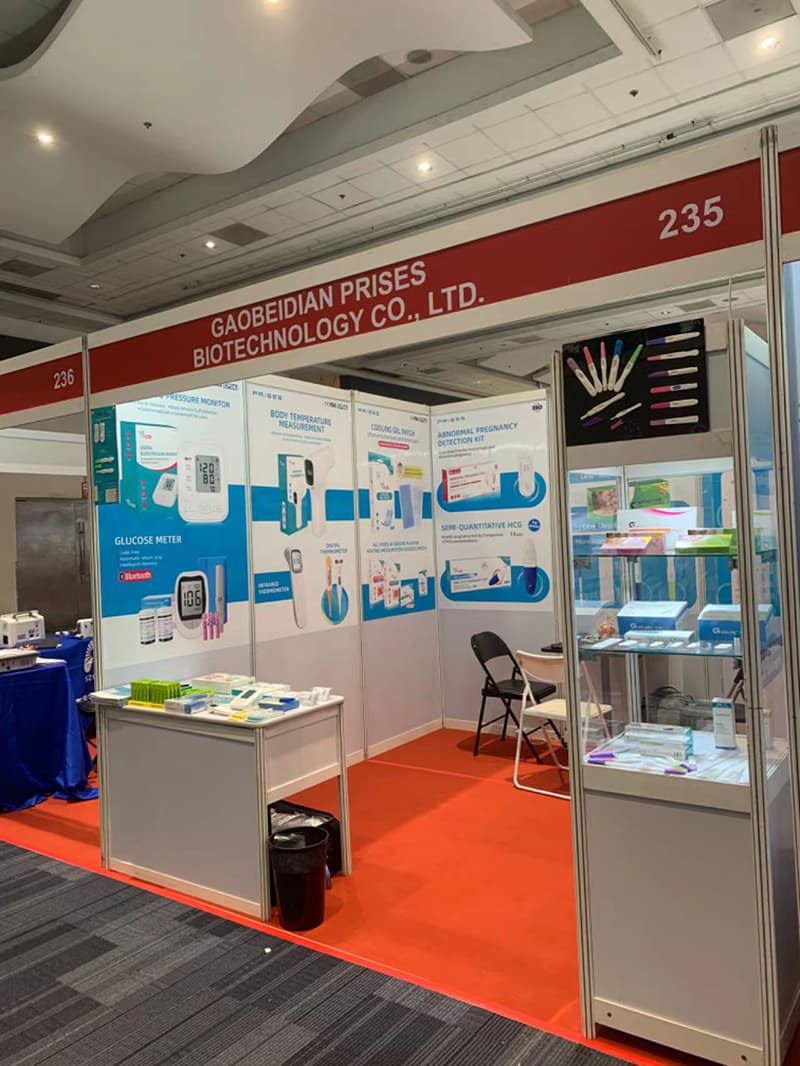Oct . 21, 2024 14:19 Back to list
Wholesale Testing Solutions for Hepatitis C Manufacturers and Suppliers
Wholesale Test for Hepatitis C A Comprehensive Overview
Hepatitis C, a viral infection primarily affecting the liver, poses significant health risks globally. The virus, responsible for acute and chronic hepatitis, can lead to serious complications like liver cirrhosis and hepatocellular carcinoma. With the increasing incidence of Hepatitis C, the demand for effective diagnostic tools has risen sharply. Wholesale testing for Hepatitis C represents a critical component of public health strategies aimed at controlling and managing this infection.
Understanding Hepatitis C Testing
Hepatitis C testing usually involves a two-step process initial screening and confirmatory testing. The initial screening is typically done using an antibody test, which detects antibodies that the body produces in response to the hepatitis C virus (HCV). If this test is positive, a follow-up test known as the HCV RNA test is conducted to confirm the presence of the virus and determine its genotype. This two-step approach ensures accurate diagnosis, enabling appropriate treatment and management strategies.
The Role of Wholesale Testing
Wholesale testing for Hepatitis C plays a pivotal role in healthcare systems, especially in community health settings. By providing tests at scale, manufacturers and suppliers can reduce costs and increase accessibility for clinics, hospitals, and laboratories. This approach is particularly beneficial in low-resource settings where financial constraints limit the availability of diagnostic tools.
The Importance of Quality in Testing
One of the primary concerns in wholesale testing is ensuring the quality and reliability of the test kits
. Poor-quality tests can lead to false positives or negatives, which not only affect individual health outcomes but also undermine public health initiatives. Manufacturers must adhere to stringent quality control measures and regulatory standards to guarantee the efficacy and reliability of their products.wholesale test for hepatitis c manufacturer

Advances in Hepatitis C Testing Technology
The landscape of Hepatitis C testing is continuously evolving, with advancements in technology leading to the development of faster, more accurate, and user-friendly tests. Newer assays, including rapid diagnostic tests (RDTs), have made it possible to detect HCV infection within minutes, allowing for immediate patient management decisions. Furthermore, point-of-care testing has emerged as a game-changer, especially in remote or underserved areas where traditional laboratory services may be lacking.
The Impact of Wholesale Testing on Public Health
The introduction of wholesale testing has significant implications for public health. By making tests more affordable and accessible, health authorities can implement widespread screening programs, facilitating early detection and treatment of Hepatitis C. This proactive approach not only helps in reducing transmission rates but also alleviates the burden on healthcare systems by addressing the infection before it leads to severe complications.
Challenges and Considerations
Despite the benefits, there are challenges associated with wholesale testing for Hepatitis C. Ensuring consistent supply chains, maintaining quality control, and addressing the varying regulatory requirements in different regions can be complex. Moreover, education and training for healthcare providers are essential to ensure proper implementation of testing protocols and to interpret results accurately.
Conclusion
Wholesale testing for Hepatitis C constitutes a vital aspect of combating this global health issue. By facilitating access to quality diagnostic tools, stakeholders can significantly advance early detection and treatment efforts, ultimately reducing the incidence and morbidity associated with hepatitis C infections. The ongoing evolution in testing technology combined with strategic public health initiatives can lead to better health outcomes, paving the way for a future where Hepatitis C is effectively managed and controlled.
-
Dengue NS1 Rapid Diagnostic Test Kit
NewsMar.07,2025
-
Dengue NS1 Rapid Diagnostic Test Kit
NewsMar.07,2025
-
Dengue NS1 Rapid Diagnostic Test Kit
NewsMar.07,2025
-
Transferrin Rapid Test Cassette Tumor Marker TF Card
NewsMar.07,2025
-
Malaria Pf Pan Rapid Diagnostic Test Kit
NewsMar.07,2025
-
malaria pf / pan ag rapid test
NewsMar.07,2025

